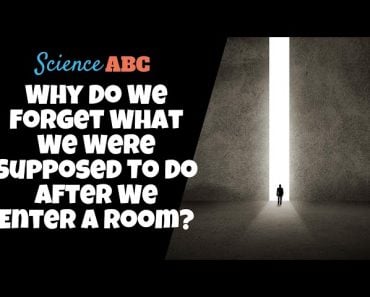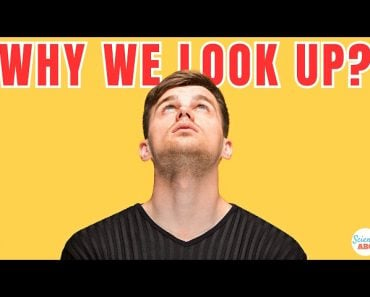Research shows that hypnosis can not only alter the way we see the world, but may also lead to the suggestion of memories of things that never happened. However, there is currently no conclusive evidence that hypnosis can be used to plant a completely new idea into someone’s mind.
“An idea. Resilient. Highly contagious. Once an idea has taken hold of the brain, it’s almost impossible to eradicate.” – Cobb, Inception
If you have seen the movie Inception, you may think that planting an idea in someone’s mind is a dangerous mission that only a few specialists could possibly accomplish.
Or is it?
Cobb, the protagonist of the movie, is an expert at spying into others’ subconscious minds. Due to that skill, he is hired to implant an idea in someone’s mind, but is it possible to achieve such a feat in real life? While the idea of dream-recording technology sounds too far-fetched for now, can we plant an idea in the head of someone who’s dozing in a dream-like state… let’s say, through hypnosis?
Let’s sit down for a spell and find out!
Recommended Video for you:
What Is Hypnosis? Is It Real?
When we hear the word hypnosis, we may be reminded of some evil doctor or a black-caped magician on a stage swinging a pocket watch before an unwitting subject to make the latter do crazy things. Any psychologist you come across will cringe at the way hypnosis is usually shown in movies and pop culture. Most would disagree that hypnotists can turn innocent victims into glassy-eyed puppets who have no control over their actions.
Hypnosis has been the subject of debate among scientists and physicians since the 1800s, when it first gained popularity as “mesmerism”. Its modern version, however, is slowly finding its way into the scientific mainstream. Thanks to studies using brain imaging techniques, hypnosis, also known as hypnotism, is now being considered a real psychological phenomenon.

In clinical hypnosis, or hypnotherapy, a qualified practitioner will lead you through a trance-like state using repeated suggestions (e.g., “your right arm feels heavy”). They also include mental imagery (not only visual images, but also sensory experiences, like smelling a non-existent sweet fragrance). As a result, you may feel very calm, relaxed and ready to accept hypnotic suggestions.
Does Hypnosis Feel Like A Dream?
Although the word ‘hypnosis’ (or ‘hypnotism’) comes from ‘Hypnos’ (Greek god or ‘spirit’ of sleep), subjects aren’t expected to fall asleep under hypnosis.
The process is more like daydreaming, where you focus your attention on the task at hand, while tuning out the other stimuli around you. For example, when watching the thrilling climax of a movie with rapt attention, you automatically pass the bowl of popcorn to someone who has asked for it. Hypnosis is a natural state that we actually experience quite often in our daily life.
Conscious Vs. Subconscious Mind
Now, the question is…which level of the human mind would you have to access to plant your idea?
The answer to this becomes evident when we understand the basic difference between the conscious and the subconscious mind in relation to how hypnosis works.
The subconscious mind is critically important, of course.
The subconscious is believed to play a key role in how we behave based on the memories and experiences we keep stored in our mind over a long period of time. Based on this knowledge, hypnosis techniques have been used to tap into the subconscious mind in several areas, such as criminal investigation.
Interestingly, a character in Inception suggests that in a dream state, when the “conscious defenses are lowered”, it is possible to enter someone’s subconscious mind to manipulate their thoughts and memories.
Can This Method Be Used To Plant Your Ideas In Someone Else’s Mind?
Research shows that hypnosis can not only alter the way we see the world, but may also lead to the suggestion of memories of things that never happened.
‘Priming’ is a technique hypnotists use to introduce new ideas into people’s minds, changing their behavior and perspectives accordingly. The subjects are ‘primed’ to accept ideas as if they genuinely sprang from their own heads.
In this sense, we can say that people in a hypnotic trance may accept ideas or suggestions that they otherwise would have dismissed.
No wonder hypnotherapy has been found to be helpful in managing pain, anxiety, depression and several other health issues. It also helps patients become more suggestible, such as to get rid of unhealthy behaviors like smoking.
However, hypnosis still lacks unequivocal empirical support—which means we need more support and data to confirm its benefits.
Does Hypnosis Work For Everyone?
Unlikely!
Some people are easier to hypnotize than others.
In people who are easier to hypnotize, two areas of the brain appear to work in sync with each other. One of them is the left dorsolateral prefrontal cortex, responsible for executive functions like inhibition, working memory, etc. The other area is the dorsal anterior cingulate cortex, a region associated with focus and attention.
By contrast, individuals who are less susceptible to hypnosis show little functional connectivity between these two parts of the brain.
For a subject to come under your ‘spell’, he or she needs to have the right brain structure, along with being willing and cooperative. Not always the easiest combination to achieve!
So, is hypnosis the only way to sow an idea into someone’s subconscious mind? Not really! In fact, people do it without knowing all the time.

The ads that pop up on your screen featuring the latest fashion trends, cool gadgets, and mouthwatering snacks… they are all designed to sneak into our subconscious and make us pursue the actions they want, namely buying more of their stuff. If a clever ad or salesperson ever convinces you to make totally out-of-character, out-of-the-blue purchase decisions, that’s when you know new ideas have been shoved into your head.
A Final Word
It is not scientifically possible (yet!) to infiltrate the crevices of someone’s mind like they do in Inception. Also, there is still a lot of research required to understand the influence of hypnosis on the subconscious mind and human behavior.
Hypnosis, however, can be used as a tool to plant an idea in someone’s mind or get them to ‘want’ to do something for the purpose of medical and therapeutic benefits; it all depends on how hypnotizable or willing they are.
References (click to expand)
- Cerf, M., Thiruvengadam, N., Mormann, F., Kraskov, A., Quiroga, R. Q., Koch, C., & Fried, I. (2010, October). On-line, voluntary control of human temporal lobe neurons. Nature. Springer Science and Business Media LLC.
- Kihlstrom, J. F. (2013, February). Neuro-hypnotism: Prospects for hypnosis and neuroscience. Cortex. Elsevier BV.
- R WILSON. HYPNOSIS - INVESTIGATING THE SUBCONSCIOUS. The Office of Justice Programs
- Hypnosis found to alter the brain: Subjects see color where .... Harvard University
- Hasan, F. M., Zagarins, S. E., Pischke, K. M., Saiyed, S., Bettencourt, A. M., Beal, L., … McCleary, N. (2014, February). Hypnotherapy is more effective than nicotine replacement therapy for smoking cessation: Results of a randomized controlled trial. Complementary Therapies in Medicine. Elsevier BV.











